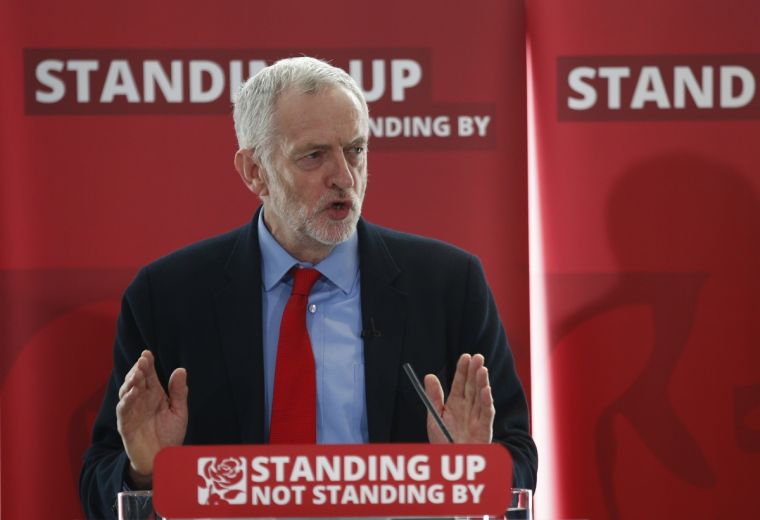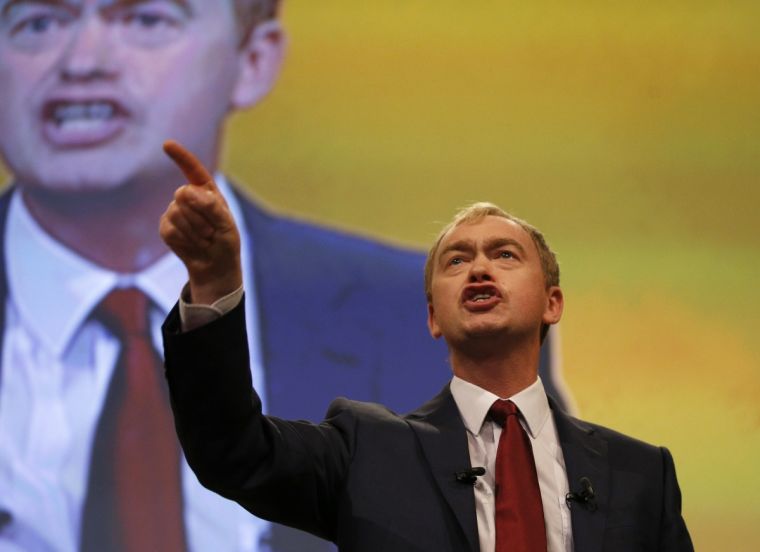Theresa May, Jeremy Corbyn and Tim Farron unite in support for Christian Aid week
Theresa May, Jeremy Corbyn and Tim Farron are uniting in their commitment to keep the 0.7 per cent foreign aid spending commitment in three articles marking 60 years of Christian Aid week.
As leaders of the three major UK parties in the general election they all argue it is morally right to keep the ring-fenced development pledge in pieces for the Church Times.
The Prime Minister says the UK should be proud of being the first G7 country to meet the target and of becoming a 'international aid superpower'.
She writes: 'Our commitment to helping the most disadvantaged people in the world says something important about Britain. It says that we are a kind and generous country that will never turn its back on those in need. We will always meet our commitments to the world and particularly to those who desperately need our support.'
A regular churchgoer she adds: 'UK Aid is a badge of hope for so many around the world, bringing light where there is darkness, and hope where there is despair.'
She finishes: 'That is a record of which we can all be proud and one which as a country we must build on in the future.'

Labour leader Jeremy Corbyn says the 'morality of continuing our support for the most impoverished people on the planet is unarguable'.
He uses his article to attack the Conservatives including the International Development Secretary Priti Patel for whom 'international development seems to invoke some kind of moral terror, balking at the notion of giving to the most needy'.
He adds: 'Emboldened by sensationalist and downright immoral newspaper headlines, the Secretary of State has suggested using our aid budget as leverage for post-Brexit trade deals. Labour would never be so morally bankrupt as to play politics with our human duty to help those in need.'
He went on to attack austerity as a 'political choice' and the UK must resist the calls 'to pull up the drawbridge and only look after our own'.
He finishes: 'We have to ask ourselves, what kind of country do we want to be? One that is insular, cynical and dominated by corporate greed, or one that is committed to building positive relationships and improving the lot of the world's least fortunate? We must defend the values we hold most dear and treat our global neighbours as we would expect to be treated ourselves if the roles were reversed.'

Tim Farron, an evangelical Christian, says eradicating poverty is not just an 'international obligation or a security measure' but 'a moral issue, coming from our gut sense of compassion and our belief that we cannot sit by and ignore the injustice of a world of such inequality and poverty'.
He writes: 'As Christians we recognise that this gut reaction comes from more than just our own thoughts and feelings but also from a sense of being called to love our neighbour, wherever they may be; whether in the next door flat or the other side of the world, in a favela in Brazil or a village in Ghana. There is an inner part of us that knows this injustice is wrong and knows that we must be part of the solution.'
But he goes on to say a funding commitment was not enough and Brits must be relational and look to welcome refugees as part of a compassionate approach.
'We must not think that simply committing to funding means that our responsibilities towards those in poverty have been discharged. The way we respond to those in need goes beyond this - it's how we treat people, it's in welcoming refugees and it's being prepared to work together with other nations. We must always be relational, remembering that behind the statistics are people – our brothers and sisters – who we may never meet but are still called to love.'
Tom Vita, Christian Aid's head of advocacy, adds the aid commitment should be Britain's badge of honour.
'It's evident that the British public cares deeply about Britain's role in eradicating poverty around the world. Tens of thousands of people up and down the UK are proudly showing their support for Christian Aid Week, as they have done for 60 years,' he writes in the Church Times.
'Yet tackling the deep-seated, root causes of poverty goes beyond aid, beyond charity, and takes long-term commitment not just for this election, but for the next Parliament and beyond.'











